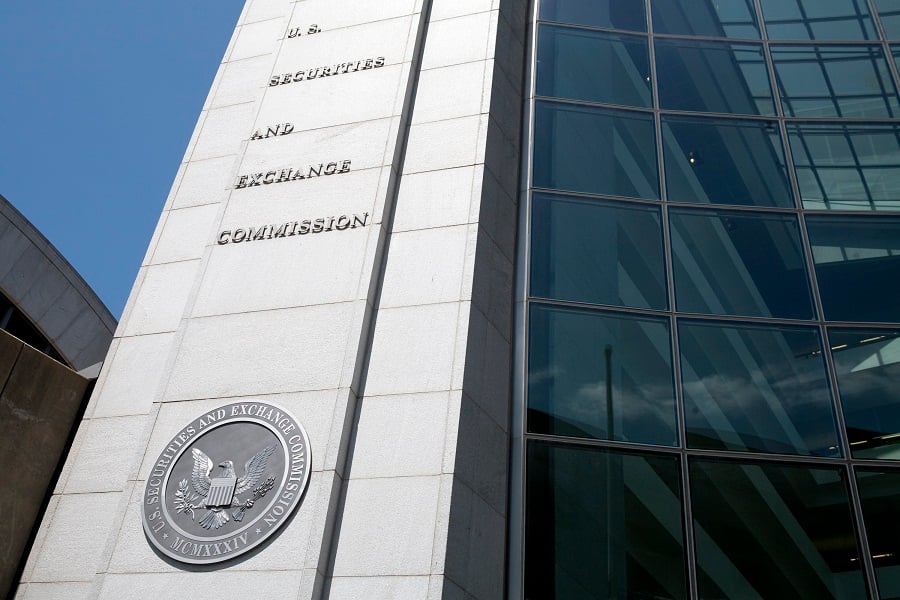

A politically divided Securities and Exchange Commission on Monday approved streamlining rules and increasing the amount of capital that can be raised through private securities.
The agency passed, 3-2, amendments to federal securities laws that would simplify and harmonize rules surrounding securities that do not have to be registered with the agency, or private placements.
Under the private market reform, start-up companies will be able to increase maximum offering amounts under so-called Regulation A (from $50 million to $75 million), online crowdfunding (from $1.07 million to $5 million) and Regulation D (from $5 million to $10 million).
The SEC also made it easier for issuers to “test the waters” before launching a private offering and provided wider latitude for conducting multiple capital-raising efforts. The changes will go into effect 60 days after they are published in the Federal Register.
SEC Chairman Jay Clayton said the changes modernize private market rules and will make it easier for small companies to obtain financing and for investors to participate on the ground-floor of their launch. In 2019, securities registered with the SEC accounted for $1.2 trillion of new capital, while $2.9 trillion was raised through the sale of private securities, according to the SEC.
Democratic SEC members Caroline Crenshaw and Allison Herren Lee voted against the final rules. They argued the SEC majority was proceeding without understanding the investor protection risks posed by expanding private markets, where valuations are opaque and risk is amplified. State securities regulators say private offerings are a leading cause of investor harm.
“Today’s rule significantly expands private market access to investors without first putting in place appropriate investor protections,” Crenshaw said at an SEC open meeting Monday. “As a result, issuers will be able to conduct larger and more frequent private offerings with fewer restrictions.”
She said small investors will be at a disadvantage compared to professional investors, who can more easily find the best private offerings and profit from them.
“[R]etail investors get the leftovers — too often, unfortunately, the losers,” Crenshaw said. “Instead of providing retail investors access to that elusive high return rate, the majority’s steady march of expanding the private markets will only further entrench the country’s increasing and concerning economic divide.”
It was the second time within a week the SEC’s Democratic tandem voted against a final rule. It opposed a regulation last Wednesday regarding the use of derivatives in investment funds.
Crenshaw’s comment drew an unusual member-to-member exchange with Republican Commissioner Elad Roisman during the open meeting.
Roisman disputed Crenshaw’s assertion that smaller investors would be harmed by the private market reform approved on Monday. He said the agency took a careful, “tailored approach” in the rulemaking, which encompassed a June 2019 concept release and a proposal last March.
“I do have a problem with your notion that this is supporting an economic divide,” Roisman said.
Roisman, fellow Republican Commissioner Hester Peirce and Clayton all voted in favor of the new rules.
In his opening statement, Clayton anticipated the opposition to the new rules. He asserted that catalyzing capital formation and protecting investors are not mutually exclusive.
“This zero-sum perspective is inconsistent with the Commission’s demonstrated history, congressional action, market performance, investor returns and investor protection,” Clayton said. “Moreover, such a zero-sum and anachronistic perspective can impede much-needed progress on a range of emerging issues important to investors, our agency and the economy more generally.”
He emphasized the new rules did not change the definition of accredited investor, which sets income and wealth thresholds governing who can buy private securities.
But Lee said the current accredited investor definition, which was set in 1982, is outdated and has allowed many ordinary investors to be deemed sophisticated and eligible for private offerings.
“At the same time, we steadily strip away investor protections in this market, reducing disclosure requirements and relaxing accredited investor verification standards,” Lee said at the open meeting. “These changes are cast as mere adjustments to the framework to make it easier to navigate, but their effects on investor protection loom large.”
The political divide on the SEC also reflects the differences between Republicans and Democrats on Capitol Hill. Republicans support expanding the private markets, asserting it will boost economic growth and create jobs. In contrast, House Democrats passed an amendment to a government funding bill earlier this year that would have killed the rules the SEC approved today, arguing that the agency was ignoring investor protection.
An investor advocate criticized Clayton for pushing ahead without achieving bipartisan consensus on the commission.
“With this vote, [Clayton] cements his reputation as the most partisan, deregulatory, and anti-investor SEC chairman in recent history,” Barbara Roper, director of investor protection at the Consumer Federation of America.
During the open meeting, Clayton said overhauling the exempt offering framework was long overdue and that tackling reform now was the best approach. Bipartisan agreement might come on another day.
“The more you engage on these [reforms], the easier they are to solve next time,” Clayton said, when the agency is “more likely to reach a consensus.”

Research reveals a 4% year-on-year increase in expenses that one in five Americans, including one-quarter of Gen Xers, say they have not planned for.

Raymond James also lured another ex-Edward Jones advisor in South Carolina, while LPL welcomed a mother-and-son team from Edward Jones and Thrivent.

MyVest and Vestmark have also unveiled strategic partnerships aimed at helping advisors and RIAs bring personalization to more clients.

Wealth management unit sees inflows of $23 billion.

Deal will give US investment bank a foothold in lucrative European market.
Orion's Tom Wilson on delivering coordinated, high-touch service in a world where returns alone no longer set you apart.
Barely a decade old, registered index-linked annuities have quickly surged in popularity, thanks to their unique blend of protection and growth potential—an appealing option for investors looking to chart a steadier course through today's choppy market waters, says Myles Lambert, Brighthouse Financial.
